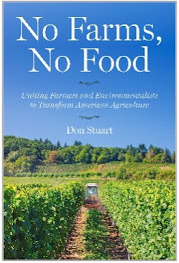The United States Department of Agriculture’s (USDA) National Veterinary Services Laboratories (NVSL) has confirmed the presence of Highly Pathogenic Avian Influenza (HPAI) in commercial and backyard birds in numerous states. HPAI can infect poultry (such as chickens, turkeys, pheasants, quail, domestic ducks, geese, and guinea fowl) and wild birds (especially waterfowl). With the recent detections of HPAI in wild birds and domestic poultry in the United States, bird owners should review their biosecurity practices and stay alert to protect poultry and pet birds from this disease. Non-bird owners should also know the signs and symptoms of this disease for situational awareness and to help with the ongoing surveillance efforts.
The clinical signs of birds with Avian Influenza include:
- Sudden death without clinical signs
- Decreased water consumption up to 72 hours before other clinical signs
- Lack of energy and appetite
- Decreased egg production
- Soft–shelled or misshapen eggs
- Swelling of the head, eyelids, comb, wattles, and hocks
- Purple discoloration of the wattles, combs, and legs
- Nasal discharge
- Coughing, sneezing
- Lack of coordination
- Diarrhea
Both domestic and wild birds can be infected and show no signs of illness. Wild birds can carry the disease to new areas when migrating, potentially exposing domestic poultry to the virus. The following bio-safety guidelines are effective methods for safeguarding commercial operations, smaller flocks, and pet birds:
- Backyard flock owners should practice strict biosecurity, including preventing birds from exposure and/or co-mingling with wild birds and other types of poultry.
- Shower, change clothes, and clean and disinfect footwear before entering your poultry housing areas.
- Respiratory protection such as a medical facemask would also be important and remember to always wear clean clothes when encountering healthy domestic birds.
- Carefully follow safe entry and exit procedures into your flock’s clean area.
- Reduce the attractiveness for wild birds to stop at your place by cleaning up litter and spilled feed around poultry housing areas.
- If you have free range guinea fowl and waterfowl, consider bringing them into coops or flight pens under nets to prevent interaction of domesticated poultry with wild birds and their droppings.
- It is best to restrict visitors from interacting with your birds currently.
- Do not touch sick or dead wildlife and keep them away from domestic poultry
- Try not to handle sick or deceased domestic birds (if you must, use proper personal protective equipment to minimize direct contact and cautiously disinfect anything that comes into contact with the deceased and or sick bird).
The United States has the strongest Avian Influenza surveillance program in the world, where we actively look for the disease and provide fair market value compensation to affected producers to encourage reporting. Positive domestic cases are handled by USDA’s Animal and Plant Health Inspection Service (APHIS), and its partners. Sick or deceased domestic birds should be reported to your local veterinarian. Sick or deceased domestic birds should be reported to your local veterinarian.
According to the Centers for Disease Control and Prevention (CDC), this strain of Avian Influenza is a low risk to the public. While the transmission rate from animals to humans is low, it is a zoonotic disease, meaning it can be shared between species.

